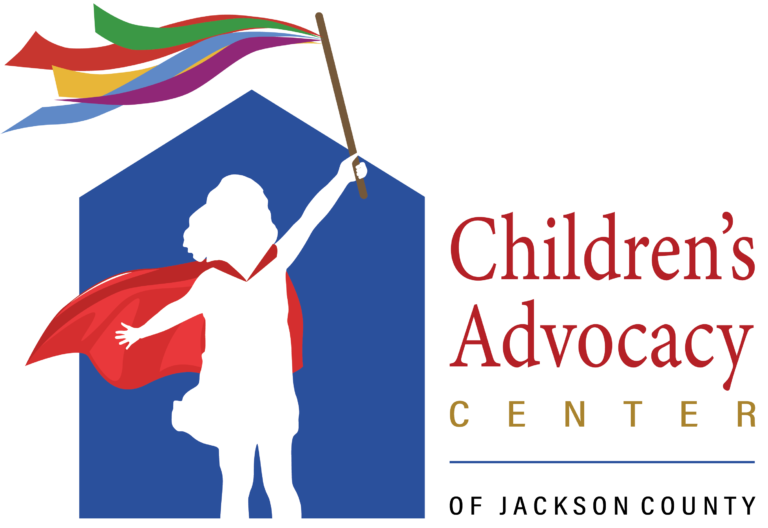By Tammi Pitzen, Executive Director of the Children’s Advocacy Center of Jackson County
January is here again. Halfway over and then on to February. I don’t typically get very personal on this blog. However it seems timely to talk about secondary trauma and what that might look like in a child.
I say timely because January 16 (yesterday) is the anniversary of a terrible event in my family’s history.
I won’t delve too deep into that tragedy, other than to say it changed me and it changed my family. I lost a family member through a horrible tragic event from which I sometimes fear I will never recover. And then February comes and I am functioning. And then March comes, and with spring, the darkness is replaced with light. Every year this cycle repeats. I used to not recognize what was going on and now I anticipate it. January is a “dark” month that is busy and maybe that busyness keeps me sane. This event happened in 2002 and is unresolved in many ways. It is unresolved legally. While I recognize that healing does not happen in the legal system, it is hard to move on until that has happened.
Bizarre how my professional life and personal life become entangled during the first month of the year. Logically I know things. But my heart does not believe my years of experience.
I want to talk about secondary trauma and maybe provide some understanding to professionals who are working with children or even adults and those in between ( but for the purposes of this blog, I am going to focus on children) who have experienced trauma or secondary trauma. I want to use my own experience to do so.
In January I become agitated. I become a little scattered…more than the normal chaos that is my life. I am tired. Fatigued beyond what anyone can really understand. I get physically sick. Sometimes with a sinus infection. Sometimes with a stomach bug. Sometimes with migraines. I stare off and disconnect…sometimes when it is not convenient. I can’t sleep. I over eat…junk food. I am distracted. I am full of anxiety. (Even as I write this…I am worried about how my family will feel…will I offend them? Will I hurt them by putting words to the experience? Will my colleagues feel differently about me?) I sometimes burst into tears and don’t understand why.
Until I remember. My body remembers first, then my heart, and finally my brain catches up. This went on for 11 years without my recognizing the connection. About four years ago, I began to make the connection back to my family tragedy and recognized that I was having some symptoms of secondary trauma.
I am an adult. An adult with 20+ years of working with trauma. It took me 15 years to recognize what was happening to me. This would be the first January that I am in control of my life. (Or at least I think I am.) And when I say control, I mean that I recognize what is happening and have a strategy to deal with it. Not that I don’t still cry when I think about the loss.
Children don’t have 15 years to learn to master their feelings and regulate their emotions. Children don’t have the words to describe these emotions they do not understand.
That child who is in your classroom, your after-school program, your Sunday school class…the one who is always bouncing off the walls. What if that is merely his body trying to save him from the pain of his trauma. The child who can’t ever stay focused. The one you call on in the middle of class when you know he is not paying attention, and then everyone in the class laughs at him—what if all his attention is focused on not completely disintegrating at any moment. We call these children low achievers. That little boy you don’t want your child hanging around because he has anger issues. Maybe he just needs some love and understanding. Maybe he has good reason to be angry. We call these children hyper. We call them a problem.
These kids are everywhere. Not just in school. This isn’t a blog picking on adults who work in the school system. I see them at church. I see them in Fred Meyers. I see them at the movies. I see them on neighborhood playgrounds. I see them in my son’s life.
I want to remind everyone that trauma can be as a result of abuse, but it can also be as a result of many other things. I recognize I am a child abuse advocate and most of what I write about is child abuse related. Trauma is trauma. Whether it is from abuse, from war, from loss…we may all experience it different. The impact is never the same. The response is not the same. But none of us are immune.
How many people do you recognize in your life who may be dealing with trauma?
Do you ever wonder how many social problems would almost completely disappear if everyone was given the tools needed to resolve trauma? Do you think we would continue to have substance abuse issues? If we could resolve trauma would we have the healthcare crisis we face now? If we were all taught how to work through and resolve trauma, would we see as many hate crimes? Would we need to spend billions on prisons? I wonder.
I am so incredibly lucky. I have a supportive family who when they don’t know what to say, say nothing and hold on tight. I am incredibly lucky in that I have a job that I love that allows me to take a sick day if I need to. I am incredibly lucky in that I am not struggling with other life challenges.
Usually at this point in the blog I am putting in some kind of resolution. Some kind of call to action. If I am honest I don’t know the answer.
Maybe compassion is the answer. Maybe seeing past the behavior and seeing the child is the answer. Therapy is a good start for the child so they can learn to recognize what is happening to their body. Therapy can teach them to understand they are not crazy. There are physical, biological responses to trauma both primary and secondary trauma. Therapy can teach them to master their emotional responses.
As adults in the lives of these children, maybe we can pause before we react to the behavior that is presented and question what the driving factor for this behavior is. Maybe we can stop asking why are you doing this and start asking how we can help. Maybe we can help support the caregivers in the lives of these children by taking the stigma out of seeking counseling.
We all need help every once in a while. Maybe love isn’t all we need after all. Maybe we need acceptance. Maybe we need understanding. Maybe.

